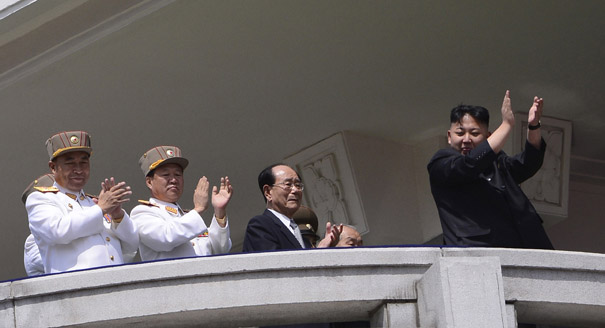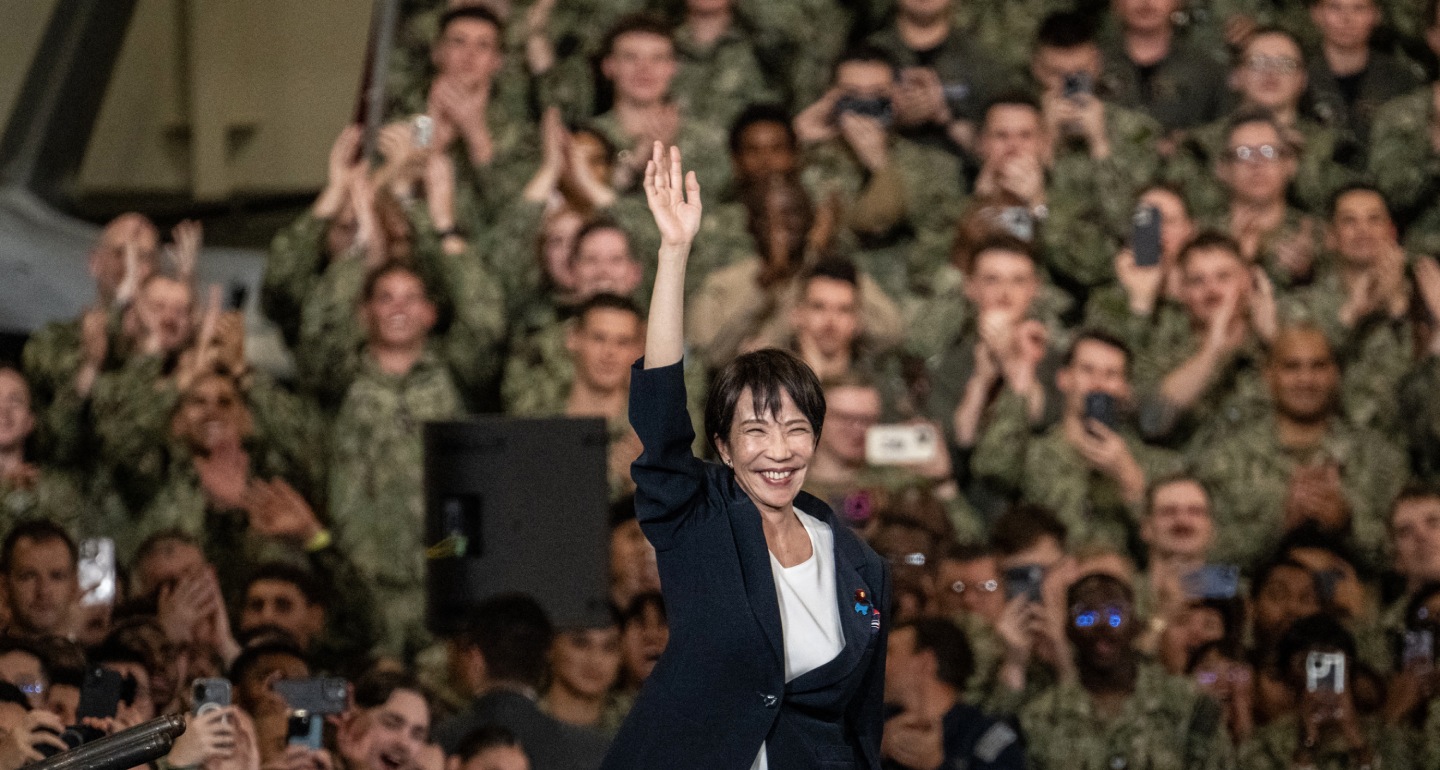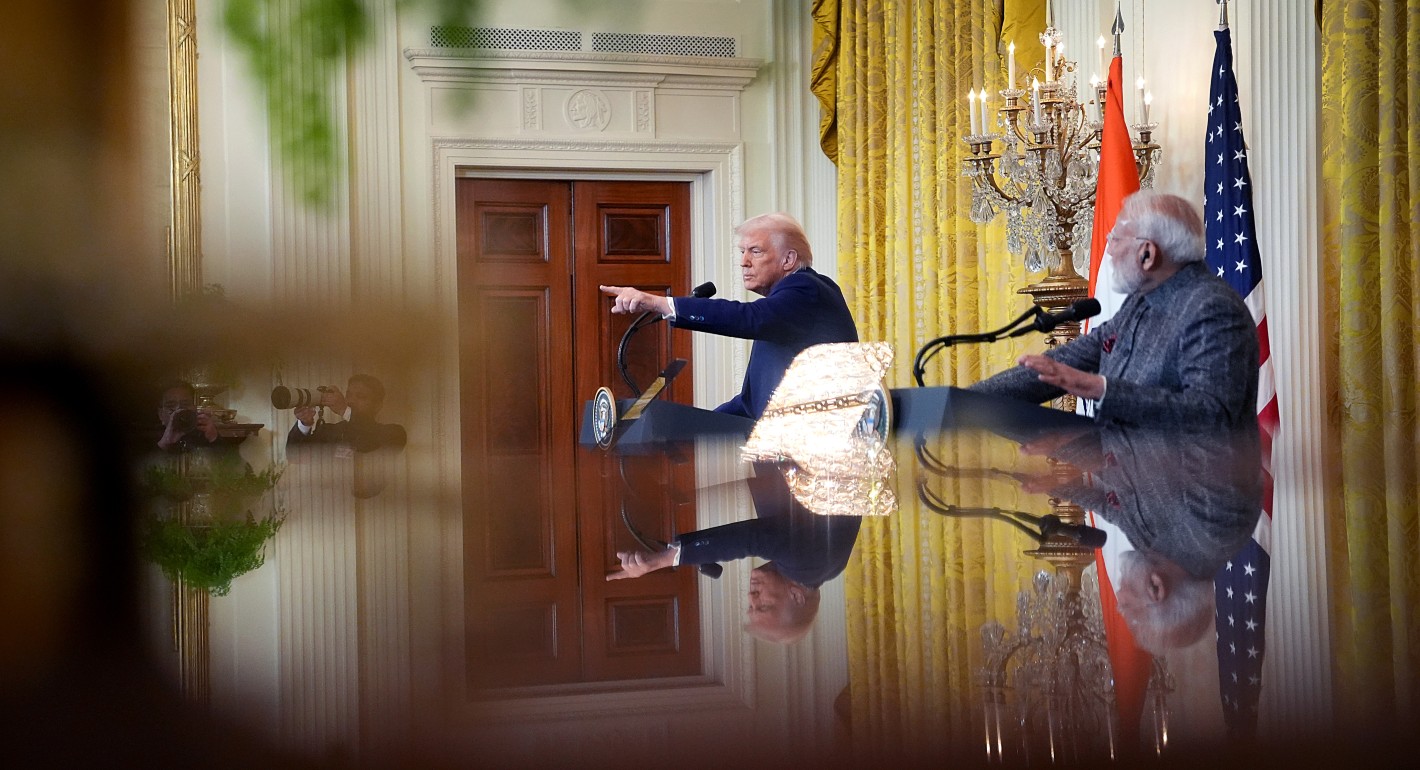Moreover, it appears that the current leader of the country, the Supreme Leader and First Chairman, Marshal Kim Jong-un has now decided to take steps that his late father did not dare to take. While retaining the official rhetoric and symbolic trappings of the regime, which indeed are reminiscent of the last years of the Stalin era, Kim Jong-un has quietly started to implement reforms that are quite similar to those begun in China in the late 1970’s, right after the death of Chairman Mao. And the reforms are working, just as they worked in both China and Vietnam.
Deng Socialism
In the fall of 2013, North Korea gathered one of the largest grain crops in its history—about 5.04 million tons. The country has not had such an abundant crop in almost a quarter of a century. Many observers attributed this fact to weather conditions back then. But in 2014 the weather wasn’t as kind to North Korea; there was a bad drought during the spring. In the past this calamity would have inevitably caused massive famine; however, nothing terrible happened in 2014. On the contrary, agricultural workers gathered even slightly larger crops than they did in 2013—5.1 million tons. For the first time in many years, the country was able to provide food for itself, albeit on the most basic of levels.
The agricultural reform approved on June 28, 2012 and put to work in the spring of 2013 lies at the heart of these successes. According to the new system, a family of farmers, or, in most cases, two neighboring families, are officially declared a “small team.” This team is given a land plot and is expected to cultivate it from year to year. At the end of each year, the team is allocated 30 percent of the total harvest, which the team is free to use at its own discretion. In the past, North Korean farmers worked for fixed rations, and this de facto transition to family farm lease has led to a breakthrough in the agricultural sector, which had long been considered utterly hopeless.
Encouraged by the early positive results, the North Korean leadership decided to build on the success of the reforms. According to the decree issued by the Cabinet and the Communist Party Central Committee on May 30, 2014, this year the farmers are promised 60 percent of the harvest (the decision was made in secret but is nevertheless widely known). In addition, the size of personal land plots is to increase tenfold—from 100 to 1,000 square meters. Naturally, farmers will be allowed to choose what crops to grow on these plots.
All these changes are very reminiscent of what was done in China during the first few years of Deng Xiaoping’s rule. The only difference is that the North Korean leadership is much more concerned with ideological accompaniment and does everything to present the reforms in a Juche-socialist light. It is not accidental that the land is not allocated to farmers’ families but to “teams,” which, of course, happen to consist of family members.
Other Reforms
The reforms are not limited to agriculture. According to the same May 30 decree, managers of state-run enterprises now receive previously unheard-of freedoms. For instance, starting from January this year, they are allowed to purchase raw materials and parts at market prices. They can also sell their products at market prices now and export them to other countries. Managers are also allowed to determine their staff’s salary. In fact, the enterprises which gave this arrangement a trial run starting in the late 2013 may now pay a skilled worker 300,000 to 400,000 won a month, which is approximately 60 dollars at market exchange rates. It is a huge sum according to North Korean standards, as the official salary in the country does not exceed one dollar a month.
Actually, these steps are not as revolutionary as they may first seem. For the most part, classical state socialism ceased to exist in North Korea back in the 1990’s. Most surviving public-sector enterprises could produce anything at all specifically because their managers obtained raw materials themselves, agreed on prices themselves, sold their own products, and independently found a way to pay their workers (although the workers were usually paid in kind). Such activities, formerly deemed illegal, have now become perfectly legitimate.
Kim Jong-un and his administration are extremely tolerant of the private sector. The believers in the “Stalinist relic” stereotypes and the all-too-eager consumers of the North Korean official propaganda may find it strange that North Korea does not only have private restaurants and workshops but also private plants and mines, though they are formally registered as state enterprises. But the private sector, which appeared in the mid-1990’s, does not merely exist—it actually produces 30 to 60 percent of the country’s GDP. North Korean entrepreneurs in part resemble Soviet-era shadow businessmen, but there are many more of them in North Korea than there were in the late Soviet Union. Under Kim Jong-il, the government attitude toward shadow business constantly vacillated between tolerance and persecution. A totally different approach prevails under Kim Jong-un: the authorities were told to leave the private sector alone and to pretend to ignore it so that it can operate smoothly.
Life Expectancy
Finally, in the last few years, the North Korean government has been trying to create a network of special economic zones (SEZ) around the country—yet another attempt to imitate China’s policies of the early 1980’s. Theoretically, the country has over 20 SEZs now, but they all face investment problems. First, North Koreans expect the investors to create the non-existent infrastructure there; besides, they are trying to limit the flow of investments from China, whose relations with North Korea have soured in the last two years. As a result, investors are not exactly flocking to the SEZs. Nevertheless, the North Korean authorities have at least finally understood the theoretical need for foreign investments.
Hence the question: why has Kim Jong-un decided to deviate from his father’s political course of no reforms, which surprised many analysts back in the day? Apparently, this decision has to do with the ruler’s age. Late Kim Jong-il feared that reforms would weaken his control of the situation and lead to deep internal political crisis. He understood that unlike Deng Xiaoping’s China, his country had to deal with the problem of a vast, ethnically-identical and extremely affluent next-door neighbor (South Korea’s per capita income is at least 15 times larger than that of the North). Therefore, Kim Jong-il was afraid that instead of the China-like economic boom, the attempted changes would lead to regime collapse and the disappearance of his country—in a manner similar to that of East Germany. That is why he avoided interfering with the course of events, reasonably believing that the system is strong enough to last through his lifetime. It was strong enough, indeed: the Great leader, Generalissimo Kim Jong-il died of natural causes in December 2011.
However, the 30-year-old Kim Jong-un cannot act the way his 60-year-old father did. The crumbling old system cannot guarantee him another 40-50 years in power; therefore, it has to be changed, however risky such changes might be. Kim Jong-un decided to take control of and essentially play the leading role in the processes of spontaneous disintegration of state socialism that started more than twenty years ago and have gone very far. He believes that he will be able to manage these processes, thus preserving his regime and the country.
At the same time, in contrast to his Chinese predecessors, the young leader is not planning to make any political changes. On the contrary, economic liberalization is accompanied by ideological crackdown. The authorities are strengthening border security, significantly stemming the flow of illegal migrants that were leaving the country to work in China (some were also fleeing to South Korea for good). The government started to crack down on bootleg videos which North Koreans have been actively watching in recent years. The owners of illegall radios are again under pressure. Owning a radio with a free dial has been a criminal offence since the late 1960’s, and all officially-registered radios are fixed so they can play only government-approved channels. Kim Jong-un understands that the nascent reforms can raise too many questions in his subjects’ minds, and the key question will be whether it is necessary to preserve separate statehood.
It is hard to predict whether Kim Jong-un would manage to accomplish his goals and create a new North Korea that boasts a functional market economy while the country remains under the tight control of the Kim family and its inner circle. Considering the enormous appeal of its wealthy neighbor to the south and Pyongyang’s international problems, this task appears extremely difficult. Nevertheless, the young Marshal does have some chance at success.
This publication originally appeared in Russian.
Andrei Lankov is a historian and a specialist in Korean Studies. He is a professor at Kookmin University (Seoul).










